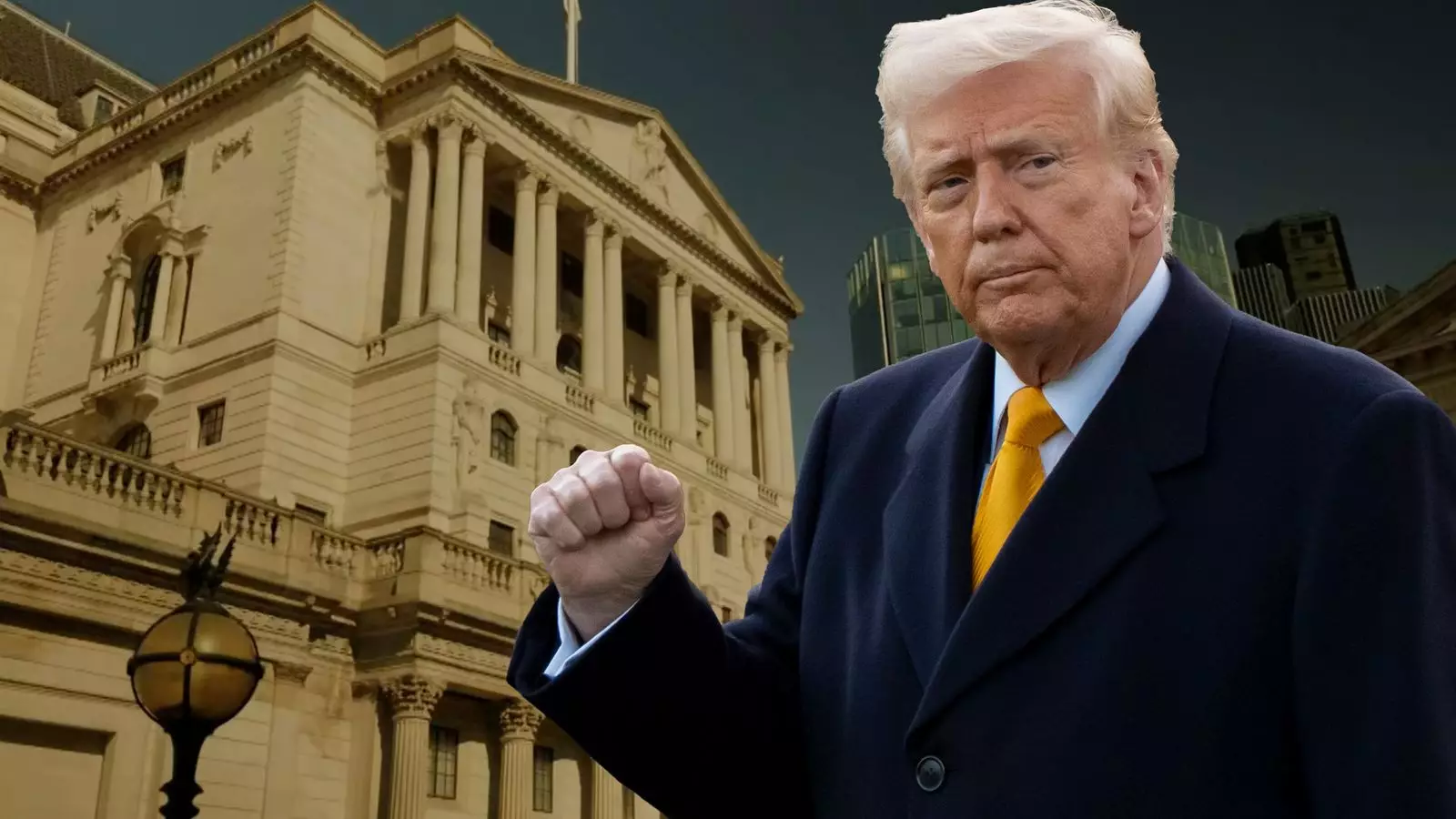Amid the murky waters of global economics, the specter of Donald Trump’s trade war looms large, casting a dark shadow over financial forecasts and policies alike. Projections now suggest a 100% likelihood that the Bank of England will cut interest rates in the coming month, a telling sign that economic stakeholders are feeling the pressure of declining consumer confidence and wavering trade relations. This isn’t just about numbers on a spreadsheet; it’s about real consequences for businesses and families that are already feeling the pinch.
The trading environment is fundamentally altered when tariffs and counter-tariffs are employed as blunt instruments. The UK, by opting not to retaliate against US tariffs, is attempting to position itself as a haven for lower-cost goods sourced from Asia and Europe. However, this could reveal an alarming duality: while one side of the economic equation seems to suggest easy access to cheap products, the underlying risk of a “disinflationary spiral” could stifle innovation and growth. Megan Greene’s assertion that the UK’s inflation might be more negatively impacted by these tariffs does raise a poignant question: are we merely trading one form of economic distress for another?
The Inflation Dilemma
Inflation isn’t just a statistical figure; it’s a palpable reality for consumers. Rising energy costs combined with impending tax increases signal a troubling trajectory for household finances across the UK. Recent comments from Bank of England officials highlight this uncertainty. Rates sit stubbornly at 4.5%, while predictions circulate that there could be three rate cuts before the year’s end, a drastic response to an equally drastic situation. Such moves are indicative of an elastic economic system desperately searching for stability, yet they are fraught with inconsistency.
A surge in the value of the pound against the dollar adds another layer of complexity to the unfolding narrative. While it might ease inflationary pressures, the question remains: how sustainable is this currency shift? The pound’s newfound strength could be a mirage, temporarily masking deeper economic fractures that require urgent, long-term solutions rather than band-aid fixes.
The Global Ripple Effect
The implications of the ongoing trade war extend far beyond the borders of the United States and the UK. Other economies, particularly those ensnared in a web of interconnected trade relations, are facing turbulence. This is where the Bank of England’s challenge lies: combating rising inflation while spurring growth through interest rate adjustments, all amidst external pressures that threaten to undermine policy effectiveness. The lack of cohesive strategies from international counterparts, especially the Federal Reserve, exacerbates the uncertainty. Their hesitance to act decisively in terms of lower rates feeds into broader fears, instigating a precarious predicament for the UK.
Trump’s belligerent stance towards the Federal Reserve—and his recent calls for drastic measures—underscore the instability exacerbated by political machinations. The president’s social media proclamations about needing immediate rate cuts could hardly be taken as sensible economic policy. Rather, they unearth vulnerabilities in fiscal governance, demonstrating how political leaders may influence central banks at the expense of coherent economic strategy.
Charting a New Course
It’s apparent that the playing field is uneven, and businesses are left grappling with an environment fraught with uncertainty. Chancellor Rachel Reeves’s upcoming discussions in Washington represent a glimmer of hope—a search for new trade agreements that could alleviate some of the burdens imposed by tariffs. A proactive approach to securing robust trade relations is essential for the UK to navigate this storm, but these discussions bear the weight of their own complexities.
Decisive action from the Bank of England is paramount. Rate cuts can provide short-term relief and demonstrate decisiveness in policy-making. However, they must be accompanied by comprehensive strategies that address the root causes of economic malaise. Integration of fiscal policy, trade agreements, and currency management must harmonize if the UK is to emerge from these turbulent times not just intact but emboldened.
In a world wrestling with political tensions and economic fallout, the immediate course of action is crystal clear: adapt or perish. The stakes have never been higher. The time to act is now.


Leave a Reply